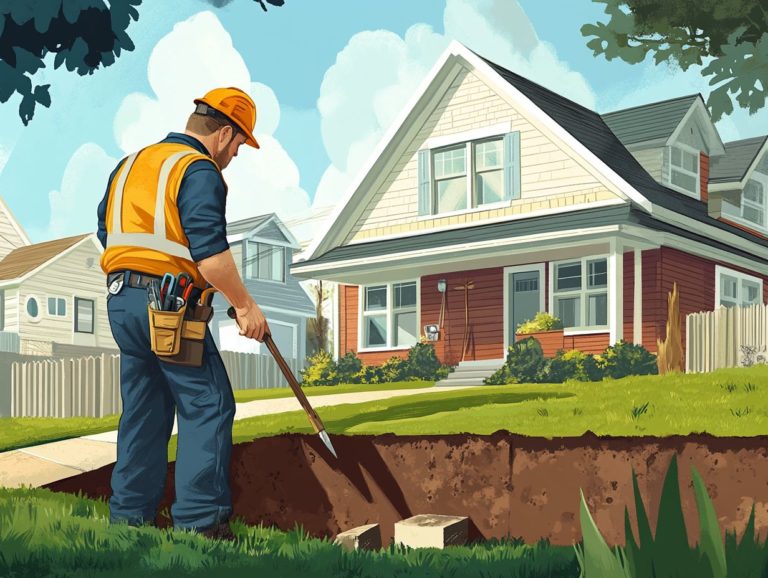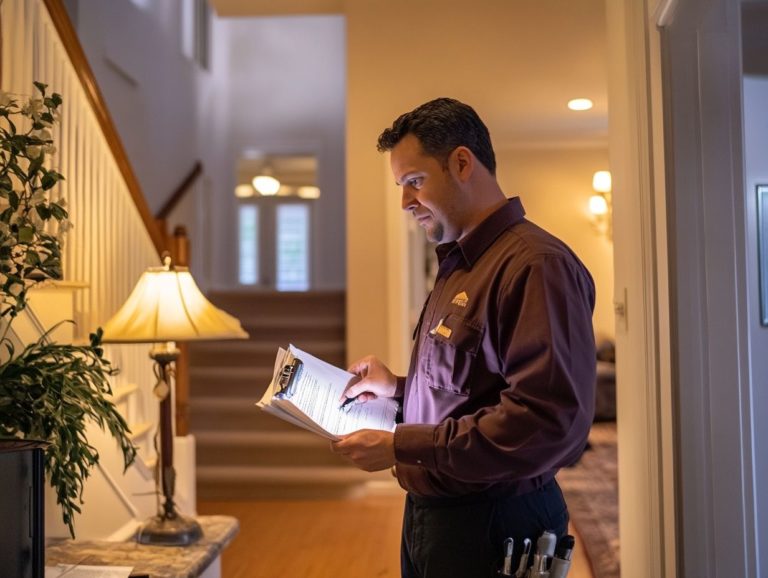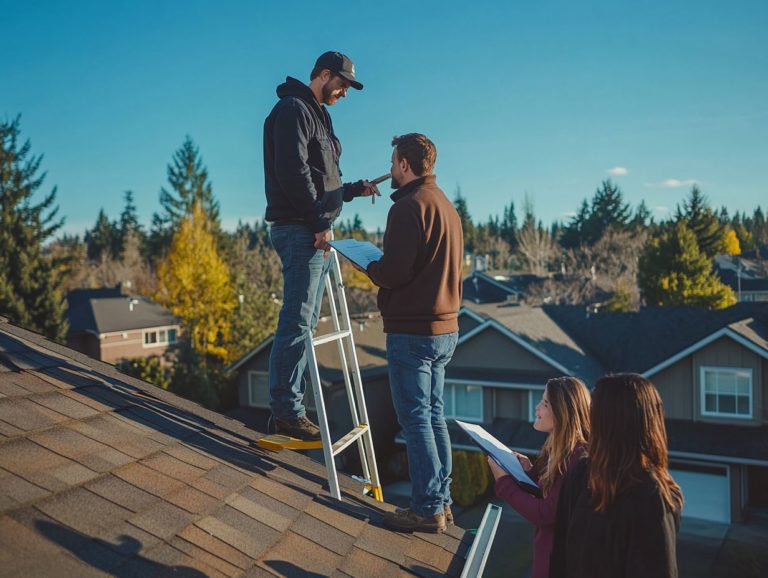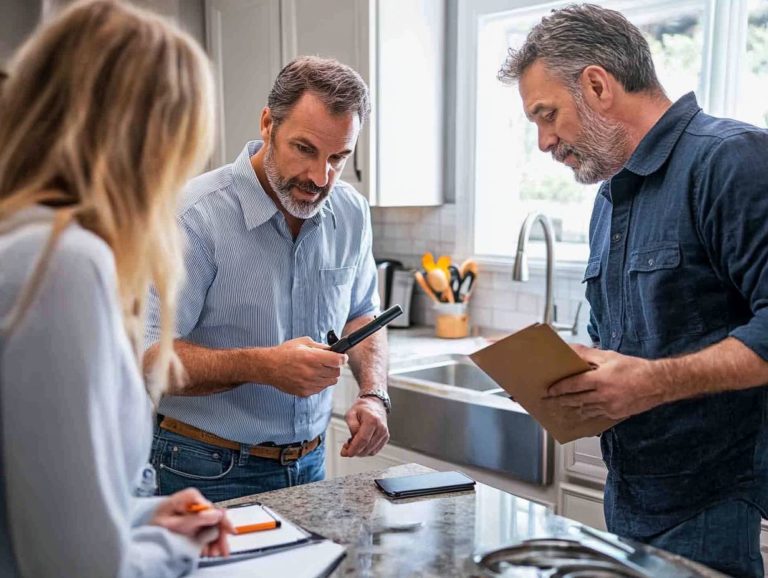How to Ensure Your Home is Prepared for Inspections
Buying or selling a home? Home inspections are key! They reveal vital details about your property, ensuring you’re ready for this big commitment.
This article will guide you through the purpose of home inspections, what to expect, and how to prepare effectively.
From common areas inspectors focus on to strategies for showcasing your home, you’ll find valuable insights to make the inspection process smoother and more successful.
Contents
- Key Takeaways:
- Understanding the Purpose of Home Inspections
- Preparing for a Home Inspection
- Addressing Potential Issues
- Tips for a Successful Inspection
- Frequently Asked Questions
- Why is it important to prepare my home for inspections?
- What should I do to prepare for a home inspection?
- How can I ensure my home is in compliance with building codes?
- Can I perform my own home inspection?
- What should I do if my home fails the inspection?
- Can I request a re-inspection after making repairs?
Key Takeaways:

Understand the purpose of home inspections! Prepare effectively and highlight your home’s best features. Address any potential issues found during the inspection to ensure a successful process.
Understanding the Purpose of Home Inspections
Home inspections are essential links between sellers and buyers, ensuring both parties are fully informed about the property’s condition and value.
A careful home inspection evaluates key structural components, such as the roof, plumbing systems, and HVAC system, empowering potential buyers with the confidence they need in their investment.
With a comprehensive inspection report, sellers can tackle significant repairs and elevate their property s value, creating a transparent and trustworthy buying experience that benefits everyone involved.
What is a Home Inspection and Why is it Important?
A home inspection is a thorough assessment of a property’s condition, usually performed by a certified inspector on your behalf, regardless of whether you’re the buyer or the seller.
This essential process looks closely at different parts of the home, from safety features like smoke detectors to critical structural elements such as the foundation, roof, and walls.
The inspector also examines vital systems, including plumbing, electrical, and heating, ensuring everything is in proper working order.
The detailed inspection report not only brings potential issues to light but can also play a pivotal role in negotiations. With a clear understanding of the property’s condition, you can move forward with greater confidence, leading to stronger offers or requests for repairs from the seller.
Preparing for a Home Inspection
Preparing for a home inspection is crucial for sellers. It elevates your property’s curb appeal and ensures it meets buyer expectations and inspection standards. For more information, check out this guide on how to prepare for your home inspection.
This proactive approach can significantly influence the sale outcome, showcasing your commitment to presenting a well-maintained home.
Steps to Take Before the Inspection

Before a home inspection, it’s essential for sellers to take specific steps to ensure their property dazzles potential buyers. Knowing how to prepare for a successful home inspection can make all the difference.
Start by giving your home a thorough cleaning; a tidy environment dramatically elevates the overall impression of the space. Declutter by removing personal items and excess belongings, allowing buyers to envision themselves living there.
Prepare essential documents, like repair records and maintenance logs, which demonstrate the care and attention you’ve poured into maintaining the property.
These efforts cultivate a welcoming atmosphere and streamline the inspection process, making it easier for potential buyers to recognize the true value and integrity of your home.
Get ready to impress potential buyers!
Common Areas of Focus for Inspectors
Home inspectors focus on several crucial areas of a property, including structural elements, the roof, plumbing systems, and heating, ventilation, and air conditioning (HVAC) systems.
During an inspection, special attention is often directed toward the roof. Its condition is vital for the overall integrity of your home and acts as a shield against the elements. Regular roof maintenance extends its lifespan and helps you avoid costly leaks and unexpected structural issues.
The HVAC system undergoes a careful check to ensure it s properly serviced and operates efficiently, providing necessary heating and cooling throughout your home. Inspectors also meticulously examine structural integrity, looking at foundations, walls, and support beams for any signs of settling or damage.
This diligence is essential for safeguarding the value and safety of the property for both current and future occupants.
Addressing Potential Issues
When issues arise during a home inspection, addressing them promptly is essential. Doing so not only maintains buyer confidence but also paves the way for a successful sale.
How to Handle Problems Found During the Inspection
Addressing the issues highlighted in the inspection report requires a well-thought-out strategy. This strategy should balance the necessity of repairs with the realities of the current real estate market.
Prioritize major repairs that could impede the sale or significantly affect the property’s value. Consider whether minor issues can be left as-is or easily resolved during negotiations.
Keep a detailed record of all repair work. This enhances the property’s appeal and fosters trust with potential buyers who value transparency.
Engaging in open and honest communication about the property’s condition and any past repairs can create a positive dialogue with potential buyers, facilitating smoother negotiations and possibly leading to a quicker sale.
Tips for a Successful Inspection

To achieve a successful home inspection, prioritize the presentation of your property and the careful maintenance of essential safety features. For detailed guidance, check out how to prepare for a home inspection.
How to Present Your Home in the Best Light
Presenting your home in its finest light requires a blend of curb appeal strategies and meticulous interior preparation.
Curb appeal is how your home looks from the outside. To enhance it, start with the exterior fresh landscaping, a tidy entryway, and a new coat of paint on the front door can work wonders. These minor details send a strong message to potential visitors: this space shows your dedication and care!
Inside, preparing your home is just as critical. Make sure floors shine, surfaces are clutter-free, and every room has a fresh scent. Simple tasks like dusting, vacuuming, and organizing can significantly elevate the atmosphere, creating an inviting environment.
When everything is in order, your home conveys warmth and attention to detail, leaving an unforgettable impression.
What to Expect During the Inspection Process
During the inspection process, prepare for a careful check by a qualified inspector, who will assess various aspects of your property. To make this process smoother, learn how to prepare for a home inspection, starting with ensuring that all necessary entrances are unlocked and easily accessible.
Next, the inspector will conduct utility checks, examining critical systems like plumbing, electrical, and HVAC to ensure everything functions correctly. Expect this process to take from a couple of hours to a full day, depending on the size and complexity of your property.
Throughout this time, maintaining open communication is vital. Anticipate updates from the inspector about any immediate concerns or findings, allowing you to stay informed every step of the way.
Frequently Asked Questions
Why is it important to prepare my home for inspections?
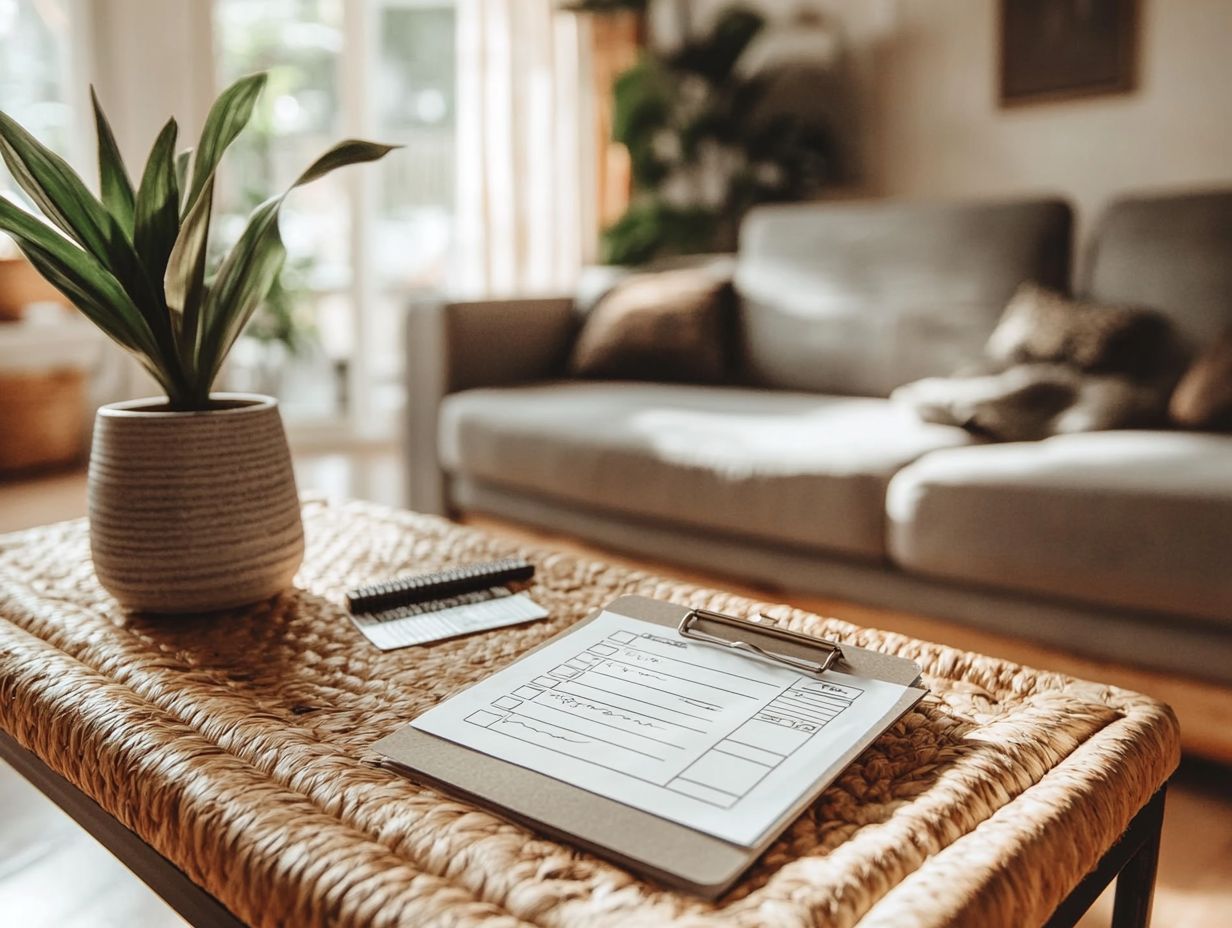
Preparing your home for inspections is crucial! It not only meets safety rules but also helps you understand how to prepare your home for an inspection and avoid costly repairs down the line.
This preparation speeds up the inspection process and increases the chances of a successful sale or rental.
What should I do to prepare for a home inspection?
Start by decluttering your home. Make sure all areas are easily accessible for the inspector.
Check for potential safety hazards, like loose wiring or broken stairs, and make necessary repairs. For more tips, see how to prepare for a home inspection as a seller before the inspection.
How can I ensure my home is in compliance with building codes?
Research your local building codes to ensure your home meets all requirements. If unsure, hire a professional to conduct an inspection and identify any code issues.
Can I perform my own home inspection?
You can do your own inspection, but hiring a licensed professional is better. They have the experience to spot potential issues and ensure compliance with building codes.
What should I do if my home fails the inspection?
If your home fails the inspection, stay calm! Review the inspector’s report and make necessary repairs.
You can also seek advice from your real estate agent or a professional contractor to help fix the problems.
Can I request a re-inspection after making repairs?
Yes, request a re-inspection after making repairs. Keep in mind that there may be an additional fee, so be prepared.
Provide receipts and documentation of the repairs to show that you ve properly addressed the issues.

